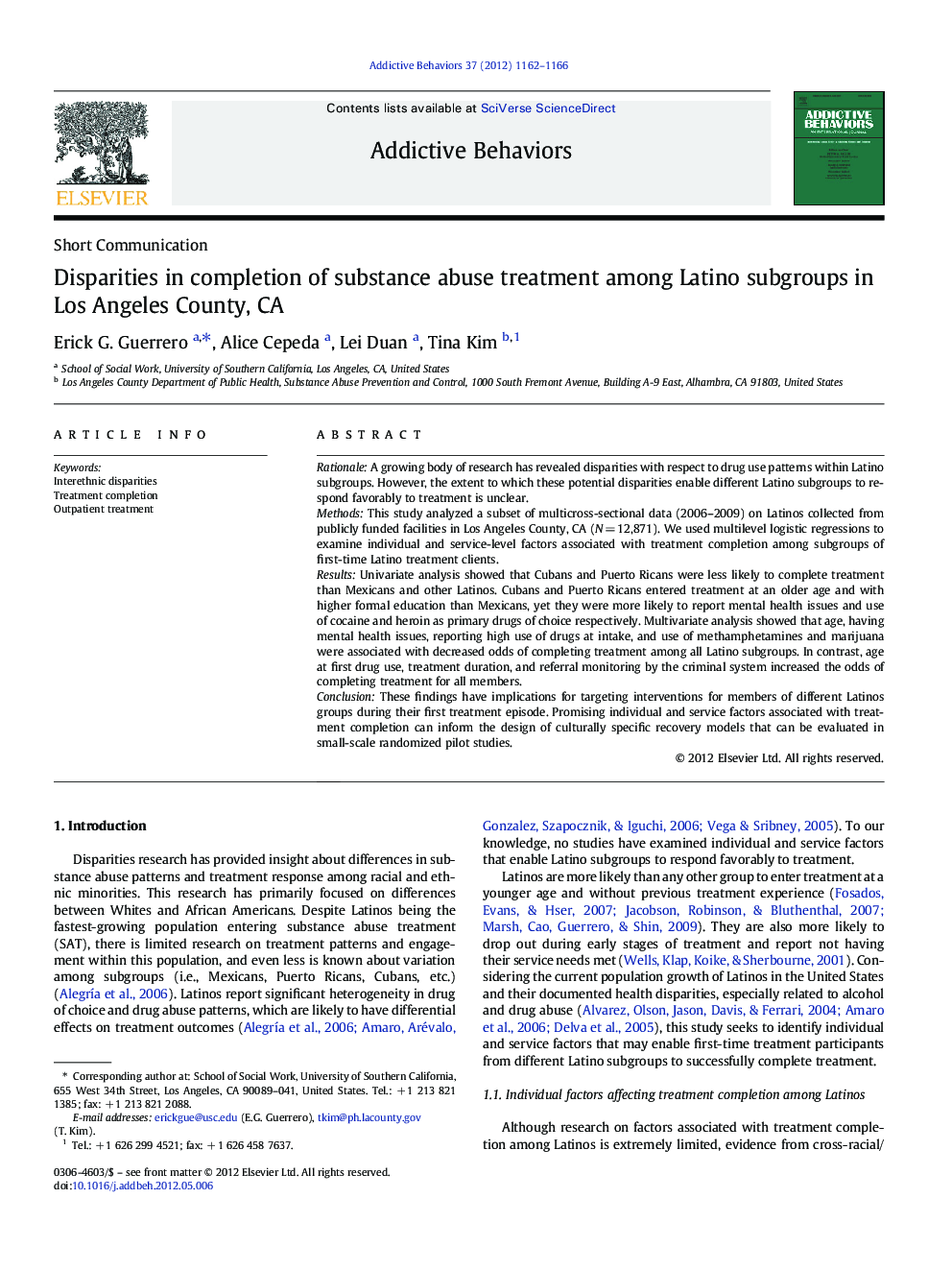| Article ID | Journal | Published Year | Pages | File Type |
|---|---|---|---|---|
| 899037 | Addictive Behaviors | 2012 | 5 Pages |
RationaleA growing body of research has revealed disparities with respect to drug use patterns within Latino subgroups. However, the extent to which these potential disparities enable different Latino subgroups to respond favorably to treatment is unclear.MethodsThis study analyzed a subset of multicross-sectional data (2006–2009) on Latinos collected from publicly funded facilities in Los Angeles County, CA (N = 12,871). We used multilevel logistic regressions to examine individual and service-level factors associated with treatment completion among subgroups of first-time Latino treatment clients.ResultsUnivariate analysis showed that Cubans and Puerto Ricans were less likely to complete treatment than Mexicans and other Latinos. Cubans and Puerto Ricans entered treatment at an older age and with higher formal education than Mexicans, yet they were more likely to report mental health issues and use of cocaine and heroin as primary drugs of choice respectively. Multivariate analysis showed that age, having mental health issues, reporting high use of drugs at intake, and use of methamphetamines and marijuana were associated with decreased odds of completing treatment among all Latino subgroups. In contrast, age at first drug use, treatment duration, and referral monitoring by the criminal system increased the odds of completing treatment for all members.ConclusionThese findings have implications for targeting interventions for members of different Latinos groups during their first treatment episode. Promising individual and service factors associated with treatment completion can inform the design of culturally specific recovery models that can be evaluated in small-scale randomized pilot studies.
►We found several differences among Latino subgroups attending treatment. ►Cubans and Puerto Ricans reported the lowest treatment completion rate. ►Risk factors included mental health issues, drug use severity and drug choice. ►Monitoring by the criminal system increased odds of treatment completion.
